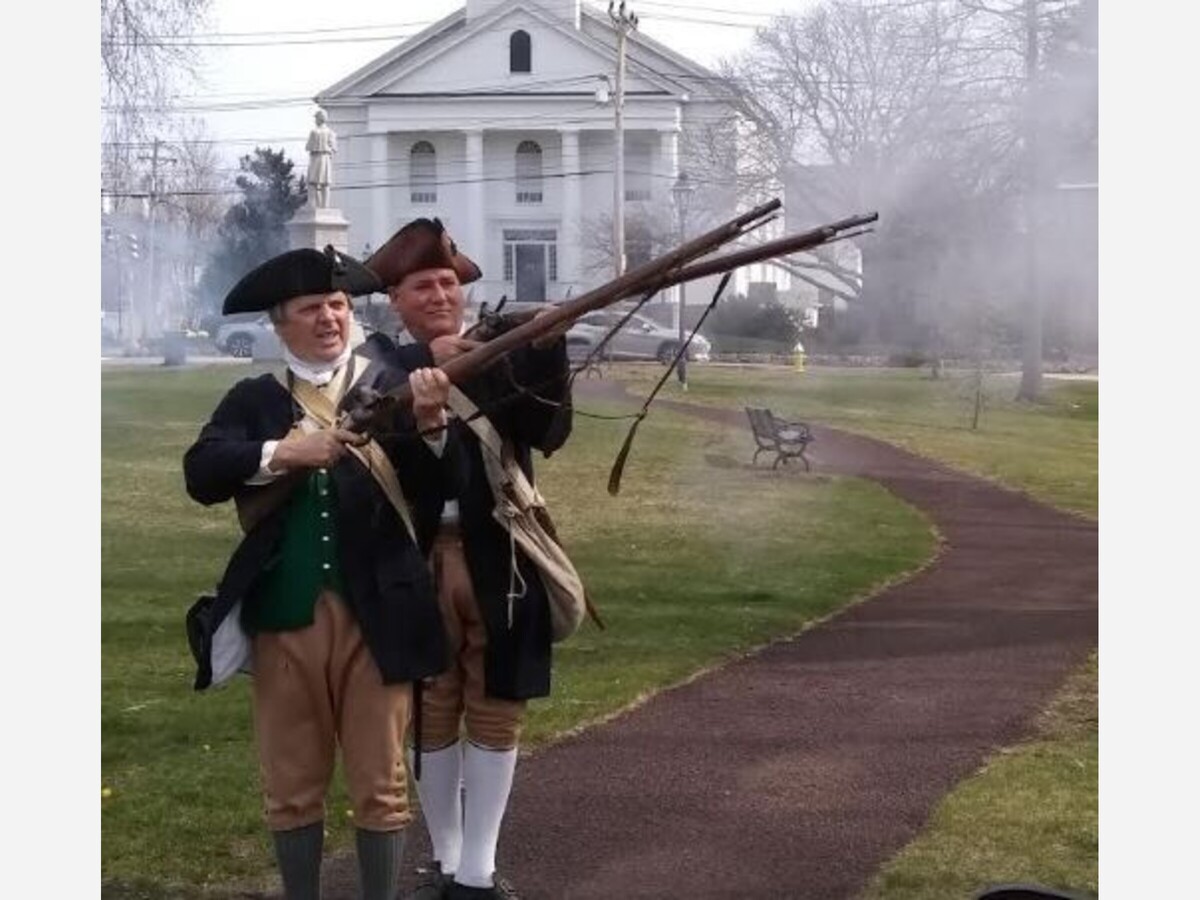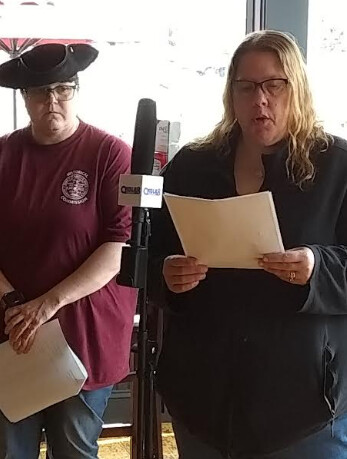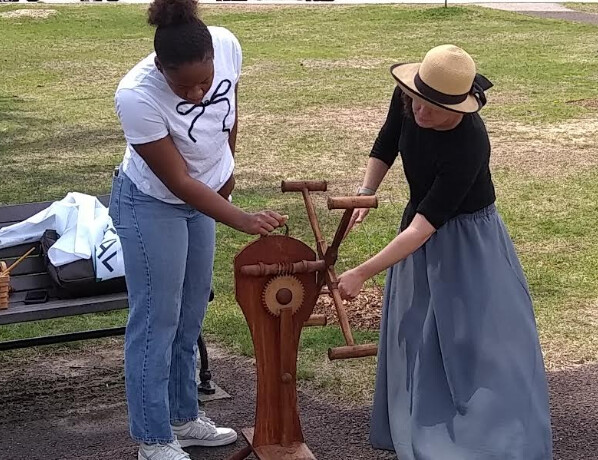Image

Above Franklin militia reenactor, Gene Grella right, and Joseph Paluzzi from Braintree, firing a ceremonial salute to the men of Wrentham who mustered and marched on April 19, 1775. (photos by Paul Pisani)
Saturday morning there was a bit of a stir in Wrentham center as the historical commissions of that town and its three "daughter" towns, Franklin, Norfolk, and Plainville, convened to recognize the scores of local men who marched for Lexington and Concord when the news of fighting reached them 250 years ago.
The event began in the "Man Tavern of 1775" -- in reality the modern-day Gavel Restaurant, where proprietor John Cox made participants welcome.
The event the proceeded with a brief recap of the history and a note that the "first blood" of the conflict with the mother country could just as easily have been spilled on Wrentham Common, where her citizens were as motivated, trained and prepared as those of Lexington and Concord.

Kristine Moore and Alicia Sheridan (above) from the Plainville Historical Commission took turns reading the long list of April 19 soldiers of old Wrentham as well as those who later participated in the Siege of Boston, the Battle of Bunker Hill and many later engagements. Another presentation highlighted new research that has uncovered previously uncredited black soldiers from the town that fought for freedom in the Revolution.
The event then continued on the Common with reenactors Grella and Paluzzi firing a salute to the local Patriots of 1775 and sharing details about soldiering in the 18th century.
Franklin's Rachel Plukas joined the crowd of mostly younger folks on the Common to showcase her nearly 250-year-old spinning wheel and "weasel" and to demonstrate and explain the vital role of women in sustaining the Patriot cause. She also noted that this "women's work" in the Revolutionary period was often performed in groups to enhance production of yarn; an environment that opened social and intellectual horizons for American women of the time, she said.

Above, right, Rachel Plukas demonstrates a "weasel" -- a device helpful to measuring skeins of yarn and, yes, the inspiration for the children's rhyme, Pop Goes the Weasel.